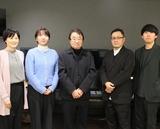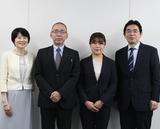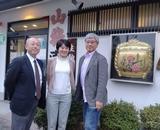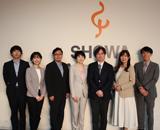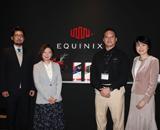September 2014
Datsun: Opening the Path to Emerging Countries' Markets -Designing UX, the Sales Tablet Tool - Nissan Motor Co., Ltd
The automotive sector is one of Japan's key industries, and one of its new globalization trends is to trail-blaze emerging countries' markets. Emerging countries are extremely compelling and represent numerous massive markets with populations of one hundred million or more inhabitants (1.2 billion in India, 200 million in Indonesia and Brazil, etc.), and the emergence of a new upper class. In such a setting, Nissan Motor Co., Ltd. has created Datsun, a strategic brand directed towards emerging countries. Datsun is a brand that formerly took over the world, but its new utterance takes a different position. This time, Arc Communications collaborated on the design of a new sales tool, UX (User Experience), a tablet used by Datsun for on-site sales.
It is an evolved version of the paper catalogues that were used up to now on showroom floors. Replacing them with a tablet gives the customer a deeper and clearer feel for our vehicles' appeal. Furthermore, this tool was devised to easily connect with the customer's buying behavior, and it allows to effortlessly realize tasks such as customizing the vehicle, drawing up a quotation, etc.
In this issue, we will be presenting the Datsun brand, Nissan Motor Co., Ltd.'s new venture, its sales strategies, and talking about their sales tool.
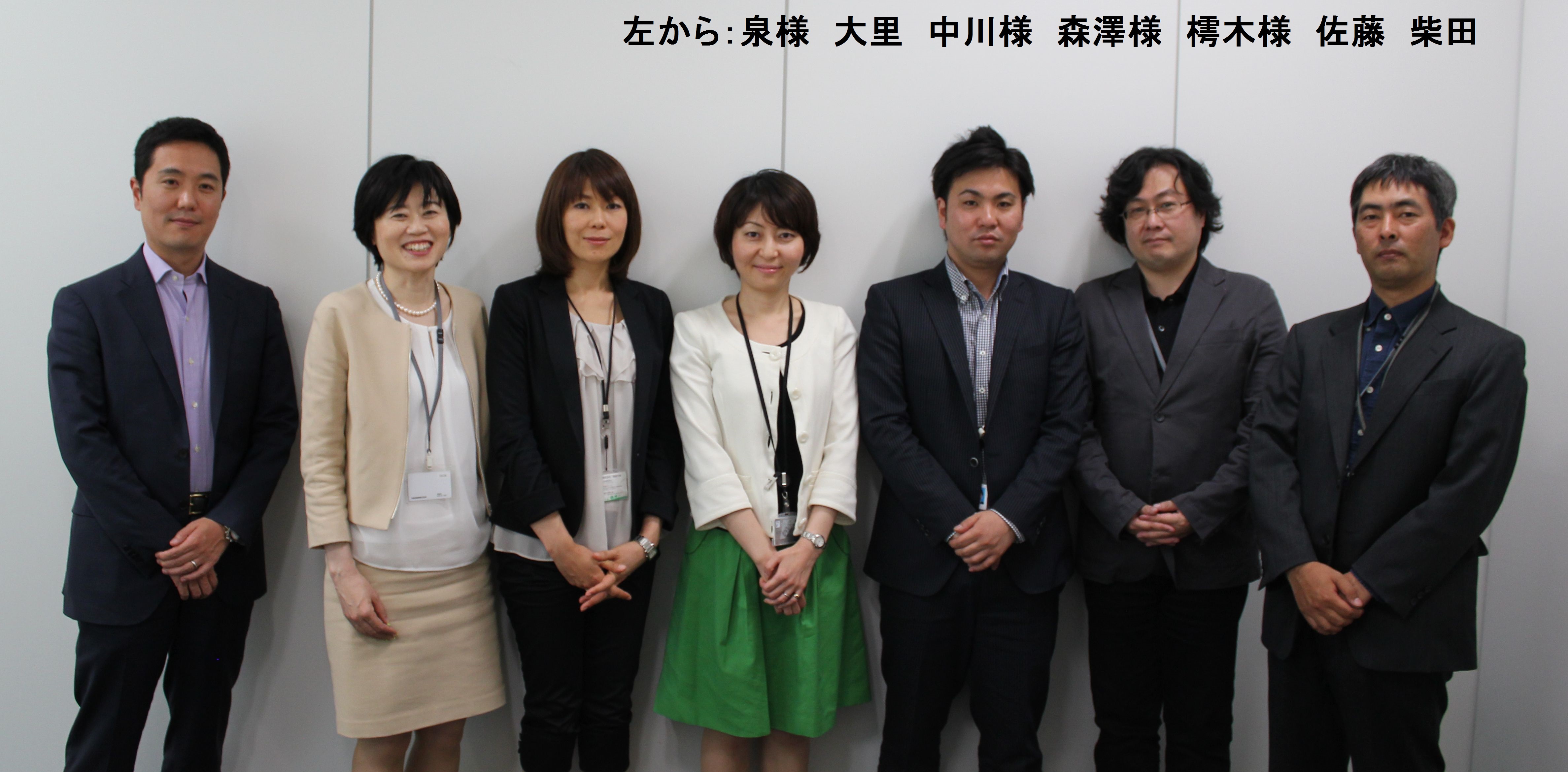
- Profile
- Shinkichi Izumi: Deputy General Manager, Marketing Product Planning Group, Datsun Business Unit, Nissan Motor Co., Ltd.
- Kaori Nakagawa: Manager, Digital Strategy Department, Global Marketing Strategy Division, Nissan Motor Co., Ltd.
- Chihiro Morisawa: Digital Strategy Department, Global Marketing Strategy Division, Nissan Motor Co., Ltd.
- Shotaro Oteki: Digital Strategy Department, Global Marketing Strategy Division, Nissan Motor Co., Ltd.
- Mariko Ohsato: CEO & President, Arc Communications Inc.
- Yoshihiro Sato: Web Executive Manager, Arc Communications Inc.
- Shinichiro Shibata: Web Chief Director, Arc Communications Inc.
"Datsun"
Ohsato: First of all, I think many people remember Datsun as Nissan's classic brand and feel a sense of nostalgia. Could you tell us more about the circumstances of its revival?
Izumi: This time, the Datsun brand will be released in four emerging countries: India, Indonesia, Russia and South Africa. Except for South Africa, the former Datsun brand had almost never reached their markets - or even if it has, that was a very long time ago. So their reaction is very different from that of developed countries, including Japan, who perceive it as a revival of an old brand.
Ohsato: The name Datsun reminds me of the large pick-up trucks you could see in old American movies. Will the brand go in a different direction?

Izumi: Indeed, our new brand positioning is dramatically different from the old one. It is said that the automotive industry will undergo major transformations in three areas: first, "emerging countries"; second, "environmental engineering"; and third, "downsizing." Datsun's position is to concentrate on two of these trends, "emerging countries" and "downsizing."
Ohsato: I see, this is very different from what I had imagined.
Izumi: Around 2000, 60% of vehicles were distributed to advanced countries, and 40% to emerging nations. It is estimated that this trend will reverse, with 60% of the cars being distributed to emerging countries in the future. So far, Nissan Motor has developed its products according primarily to the markets and needs of advanced countries. Going forward, we believe it will be vital to develop and launch products reflective of demands in the emerging countries' markets. And Datsun is the brand dedicated to taking on this endeavor.
Manufacturing Vehicles for Emerging Countries
Ohsato: Can you share with us Nissan's plan for developing Datsun car models for markets of emerging countries?
Izumi: Nissan Motor has brands called Nissan and Infiniti, but these aren't sufficient to address entire markets. Therefore, we will focus on the so-called "entry" segment with the Datsun brand for people who purchase a new car for the very first time.
Sato: Entering a new market and tackling new segments must be particularly difficult, strategically speaking.
Izumi: We have no other choice than to go through a trial and error process. The car dealers have to provide suitable explanations, processes and services to customers who want to buy their first car, and it is a big challenge because we also have to start up new dealerships. The sales tool you helped us devise will help visualize the overall process and we hope it will help us secure an important position in the market.
Sato: In emerging countries, the car selling process probably isn't properly established as it is in Japan. Furthermore, even with an "entry" segment price tag, cars are still expensive and they aren't the kind of products that are bought on a whim, so I imagine it must be rather complicated.
Izumi: An affordable vehicle with a reasonable price, so to speak, which entices the buyer to purchase. That is what we are aiming for, but in these countries, a new car has the same value as buying a decent house. Rather than being a consumer good, it's an investment. In Indonesia, for example, a governmental initiative has established standards and tax-break privileges for new cars. For that reason, the automotive market has been considerably invigorated. Datsun too is releasing cars in conformity to these standards, so we have high hopes for them. Until now, the price range of entry segment cars started at 1,300,000 yen, but with the release of the Datsun "GO" model, we have established a ground-breaking 600,000 yen starting price. This aspect has also caught the attention of the market.
Feature Interview Index

